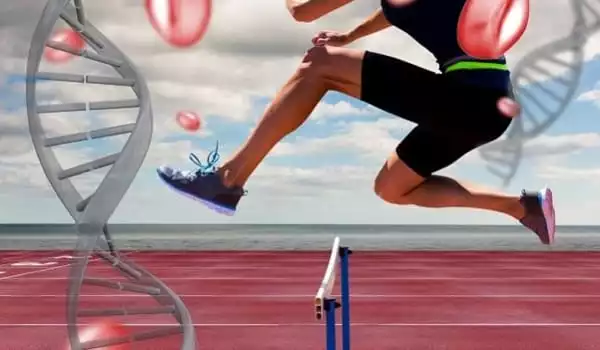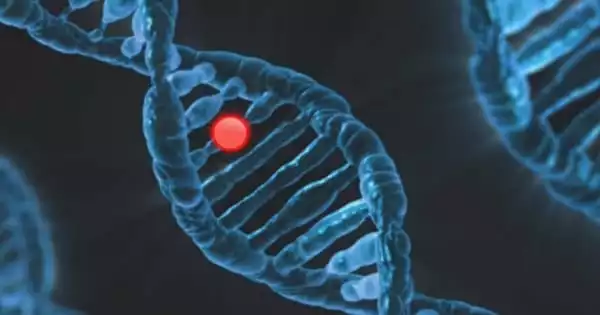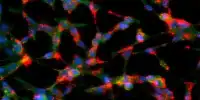All aspects of fitness and performance, including muscles and strength, are influenced by genetics. Genes influence our abilities to some extent, from sprinters who have genes that allow them to develop more fast-twitch muscle fiber to endurance runners who have genes that dictate muscle contraction speeds. Science is revealing new insights into how our genes affect every aspect of our lives. Genetics has long been known to have an impact on health, and it seemed reasonable to assume that it also determines some of our fitness abilities. Regardless of how hard we train, not all of us are destined to be elite athletes.
According to a new study, genes can explain up to 72 percent of the difference in outcome between people following a specific fitness exercise. The study used data from 3,012 adults and discovered a number of specific genes that influence the outcomes of various physical activities.
The study, published in the journal PLOS ONE and led by experts from the Cambridge Centre for Sport & Exercise Sciences at Anglia Ruskin University (ARU) in England, discovered that genetic differences can account for up to 72 percent of the difference in performance outcome following a specific exercise. The researchers examined data from 3,012 adults aged 18 to 55 who had not previously participated in exercise training to determine how our genes can influence three types of physical exercise.
Genes play an important role in how our bodies respond to exercise and identify a number of specific genes that influence the outcomes of various types of physical activity.
Henry Chung
Muscle strength, cardiovascular fitness, and anaerobic power are all important factors in determining an individual’s fitness, wellbeing, and quality of life, and all participants improved after their exercise training, but to varying degrees, even when performing the same exercise training.
The researchers discovered that genetic differences account for 72 percent of the variation in outcomes for people who performed identical exercises designed to improve muscle strength by combining data from 24 separate studies.
Meanwhile, genetic differences accounted for 44% of the differences observed following cardiovascular fitness exercises, as measured by V?O2max testing, and 10% of the differences observed following exercises to improve anaerobic power, which is important for movement and agility. Other factors such as diet and nutrition, recovery, and injuries influence the remaining variations.

Each gene has alleles, and the type of allele influences how effective the gene is. These alleles, according to the researchers, are what cause people’s bodies to respond differently to the same exercises. In total, 13 genes and associated alleles were identified as being responsible for how well the body responds to cardiovascular fitness, muscular strength, and anaerobic power exercises.
Gene testing, according to the researchers, could allow exercises to be tailored to be more effective for each individual rather than general exercise for all. Everyone, from hospital patients undergoing rehabilitation to elite athletes, could benefit from this.
According to the study’s lead author, Henry Chung, a Postgraduate Researcher at Anglia Ruskin University (ARU), “We all know that exercise is good for us, but even when we follow the same training regimen, we all improve at different rates. This implies that there are other factors at work. Our research discovered 13 genes that play a role in exercise outcomes, and we discovered that specific alleles within these genes are better suited to certain aspects of fitness. For example, in the case of repetition exercises designed to increase muscular strength, genetic differences explained 72 percent of the variation in outcomes between people who completed the same training.”
Because everyone’s genetic make-up differs, our bodies respond to the same exercises in slightly different ways. As a result, identifying someone’s genotype and then tailoring a specific training program just for them should be possible to improve the effectiveness of an exercise regimen. This could be especially useful for those who need to see results quickly, such as hospital patients or elite athletes, where minor improvements can mean the difference between success and failure.
Researchers now know for certain that certain genes influence how far we can go in fitness, endurance, athletics, and strength. All aspects of fitness and performance, including muscles and strength, are influenced by genetics. Genes influence our abilities to some extent, from sprinters who have genes that allow them to develop more fast-twitch muscle fiber to endurance runners who have genes that dictate muscle contraction speeds.
As a personal trainer, you will come across clients who struggle to gain muscle strength and size as well as those who excel at it. You may also be expected to rely on genetic test results to assist clients in reaching their full potential. You can improve client workouts and results if you have a better understanding of how genes influence muscle growth and development.














